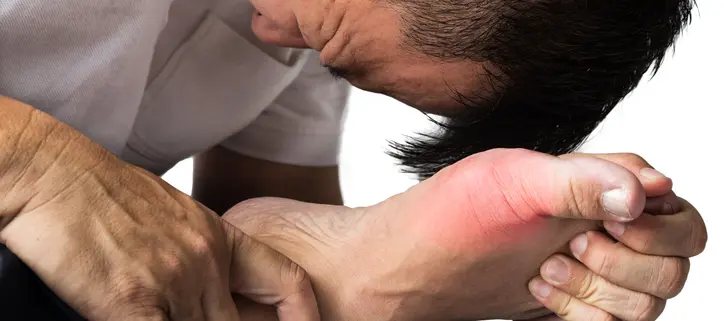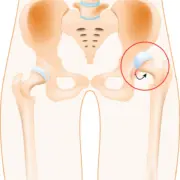The 411 on Gout
Gout is a painful form of arthritis, characterized by inflammation that occurs when uric acid builds up and crystalizes in your joints. Symptoms include painful inflammation, tenderness and redness around the affected joint. Some people experience gout in different joints of the body, such as the knees or elbows, but it most commonly effects the big toe.
If you have high levels of uric acid in your blood, you may have a condition called hyperuricemia. Your liver normally metabolizes uric acid, and the kidneys get rid of it when you go to the bathroom. The levels of uric acid build up when not enough uric acid is eliminated, or too much uric acid is being produced. The purines in our food which increases the uric acid levels in our blood, are known to bring on gout attacks.
The uric acid buildup takes a crystalline form, and often finds a home in the joints. Since our joints need to stay lubricated and run very smoothly, a buildup of crystals will cause inflammation and pain, known as gout. When you are experiencing a gout attack, the affected joint will feel hot, swollen, turn red and will become very sensitive to the touch. The onset of pain during a gout attack will increase for 24-48 hours if left untreated.
Blood and urine tests are always recommended by your doctor in order to measure the level of uric acid in your blood. Taking in fluids dilutes the levels of uric acid, so drinking at least 64 ounces of water a day is ideal for breaking down uric acid levels, and as a result gout pain may decrease.
If you are experiencing gout flare-ups, it could be one of a few reasons and risk factors: males over 40 years old, family members with a history of gout, obesity, aspirin medications, a diet consisting of high purine foods or high-fructose drinks. Heavy drinking also contributes to elevated uric acid levels.
More often than not, gout has to do with our diet and what we are eating. It’s best to stay clear of certain foods when you have high uric acid, have had gout attacks in the past or family members that have had it as well. Certain medications can help control uric acid levels, and your orthopedic doctor can recommend the best treatment option for you.
While gout may seem like something that you can manage, it’s best to get it treated right away before inflammation and pain turn into more serious injury or disease. To learn more about gout and how to avoid it, call Colorado Center of Orthopaedic Excellence in Colorado Springs at (719) 623-1050 or request an appointment online.







